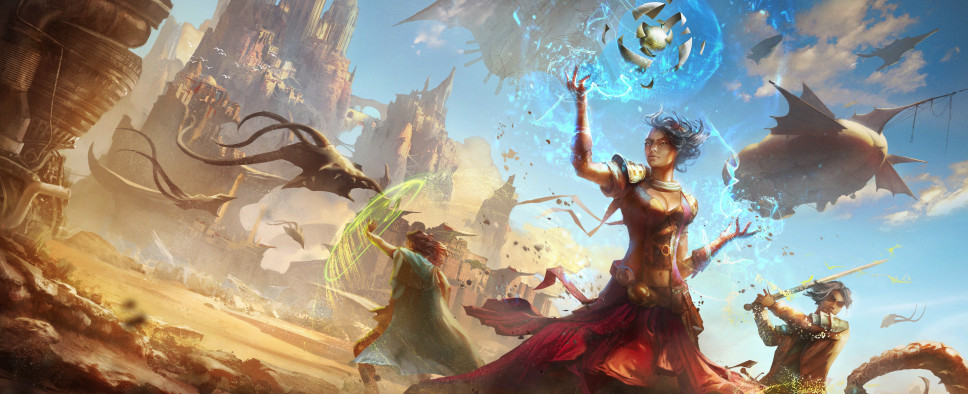Should You Play Torment: Tides of Numenera?
-
Category: News ArchiveHits: 3204

A couple of PCGamesN editors have recently sat down to discuss InXile's Torment: Tides of Numenera and that led them to a lengthy conversation about a bunch of recent and soon-to-be-released CRPGs. You should check out the article if you're looking for reasons to pick up Tyranny, Divinity: Original Sin, and Torment: Tides of Numenera, or if you would like to get excited about Divinity: Original Sin II and No Truce With the Furies. An excerpt:
Jeremy: Huh, yeah – the western RPG hadn’t felt like an emergent art form for a long time, until maybe a year or two ago. It feels as if the first wave of Kickstarter RPGs allowed devs to pick up where they left off in 2000, before publishers and the move to 3D pretty much killed literary RPGs, and that was good. But now we’re moving beyond nostalgia into this more experimental space. Have you played any Tyranny?
Chris: I have played some Tyranny. I need to play more actually. But yeah, that’s a real good example of a studio taking older ideas and spinning them in new light. What do you like about it in particular?
Jeremy: Ooo, what first. OK: one clever thing it does is be quite short. Tyranny is as reactive as you remember Baldur’s Gate and Icewind Dale and all those other old RPGs to be before you go back and replay them. And it manages it by picking a tight focus – just a couple of pockets of resistance in one corner of a world otherwise ruled by evil – and sticking to a handful of characters. There are a few factions in Tyranny, but I don’t think of them so much as the faces that represent them. The paternal and grumpy Graven Ashe. The Voices of Nerat. He’s got a few faces, actually. Sorry, am I gushing?
Chris: I do feel damp. But no, that’s good, and gels with my impressions of it. By focusing on something a little smaller they seem to have made something quite dense and that won’t sap all your time as you play it once, twice, thrice. Which is what these games are for, to an extent, right? You want to explore these spaces and scenarios multiple times and probe them in different ways.
What I’m really into, from the little I’ve played of these types of games, is how each choice you make – no matter how small – feels like it’s had an impact on the world in some way, and that you then have to live with the consequences of that, which can be tiny or very large. A lot of RPGs during that slump period you mentioned seemed to pipe you down a single lane and only gave the impression of choices and consequences, rather than committing you to them. Now what we’re seeing are RPGs that make their stories more personal and surprising.
[...]
Chris: OK, OK, so if you had to give me one good reason to play each of these games, what would it be? And bear in mind that I’m mostly interested in the world building side of them, as well as anything new or experimental they do?
Jeremy: OK, yep, crunch time. I think the best thing to do is give you a question each of these games answers.
For Tyranny, the question is: what if Sauron was a communist, and you were on his PR team?
In Torment, it’s that curiosity killed the cat. But if death didn’t stick, and the world was full of potentially lethal curiosities, what could you discover?
And for Divinity, what chemistry happens if I cast a lightning bolt into a poison cloud? And how much comedy alliteration can a writer squeeze into one dialogue box?
Pillars of Eternity is great, but the question’s more mundane there: what if Baldur’s Gate II wasn’t beholden to decades of D&D rules and lore? I really think of Pillars as the necessary and brilliant building block that enabled the forward push of Tyranny.

